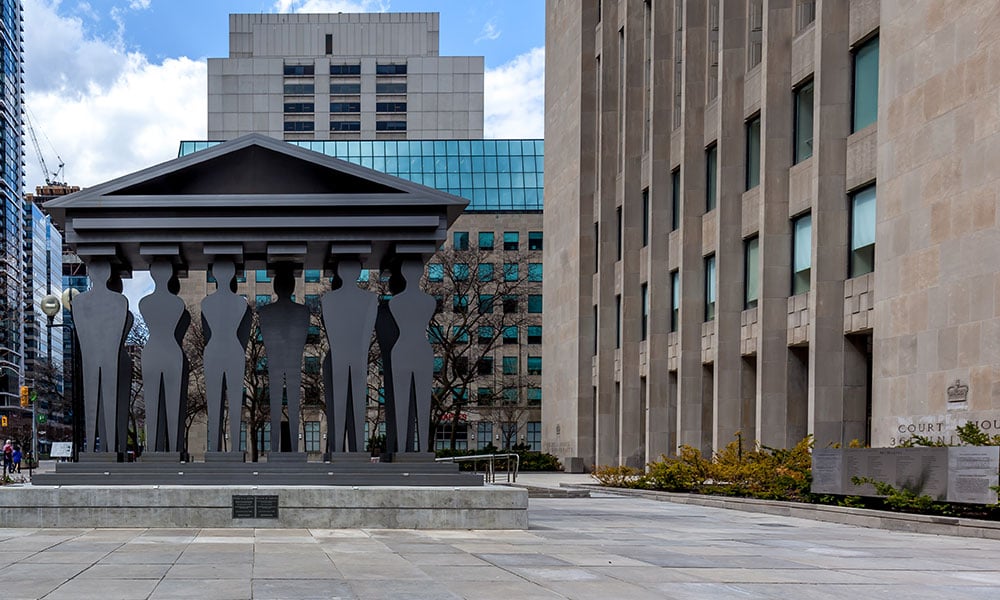
The programs involved hallucinogenic drugs and forced nudity

The Ontario Superior Court of Justice has found two psychiatrists had committed assault and battery and caused long-term harm to mental health patients for experimental treatments, which included solitary confinement, forced nudity and hallucinogenic drugs.
In Barker v. Barker, 2020 ONSC 3746, the plaintiffs were 28 former patients involuntarily admitted to the Oak Ridge Division of the Mental Health Centre in Penetanguishene, Ontario. While they initially filed their case as a proposed class action two decades ago, it has since been denied certification and has been reconstituted as an individual action.
Dr. Elliott Barker and Dr. Gary Maier developed or implemented three programs in the maximum security institution’s social therapy unit: Defence Disruptive Therapy, where patients were placed in restraints and received high doses of mind-altering drugs; the Total Encounter Capsule, where groups of patients were placed nude in a windowless isolation cell with one shared toilet and no access to showers and subjected to a strictly liquid diet and hallucinogenic drug encounters; and Motivation, Attitude, Participation Program, a strict physical disciplinary regime which involved solitary confinement and sitting motionless for hours at a time.
The plaintiffs testified that they were told that these programs would supposedly break down their defences and personalities, but they were not informed of any potential therapeutic benefits.
Because Oak Ridge was a hospital facility for which the provincial Crown was fully responsible pursuant to legislation, the issue was whether the Ontario government or the two doctors breached the fiduciary duties owed to the plaintiffs as their patients. Put differently, the question was whether the programs could be considered medicine or a form of abuse.
Justice Edward M. Morgan, writing for the Ontario Superior Court of Justice, released a decision over 300 pages long, describing the treatments as unethical, medically meritless, flagrant and outrageous. An expert witness for the defendants even conceded that the programs may be considered inhumane and degrading.
Justice Morgan ruled that the doctors and the Crown were liable to each of the 28 plaintiffs for causing varying degrees of long-term and/or short-term harm by violating their fiduciary duties and by committing assault and battery. The Crown’s liability was found to be direct and vicarious in nature because it knowingly assisted the doctors in perpetrating the assault and battery.
“This landmark decision underscores the inviolability and the right to human dignity of every person, regardless of who they are — no one should be exposed to dehumanizing and degrading treatment and experimentation,” said Joel P. Rochon of Rochon Genova LLP, co-lead trial counsel for the plaintiffs. Medical professionals should abide by ethical obligations and standards of professional conduct when dealing with vulnerable and marginalized patients, he said.
Other counsel for the plaintiffs included Peter R. Jervis, Golnaz Nayerahmadi and Adam Babiak, also of Rochon Genova LLP.
While this decision covered the issues of liability, causation, defense and limitation, the trial will move forward with its second phase, which will delve into the determination of damages.